Olivia LaDuke
"I can imagine the fear, of not fully understanding what’s in it. But the important thing is vaccines are tested; they are safe. They wouldn’t put it out if it wasn’t safe. Any adverse effects are so rare."
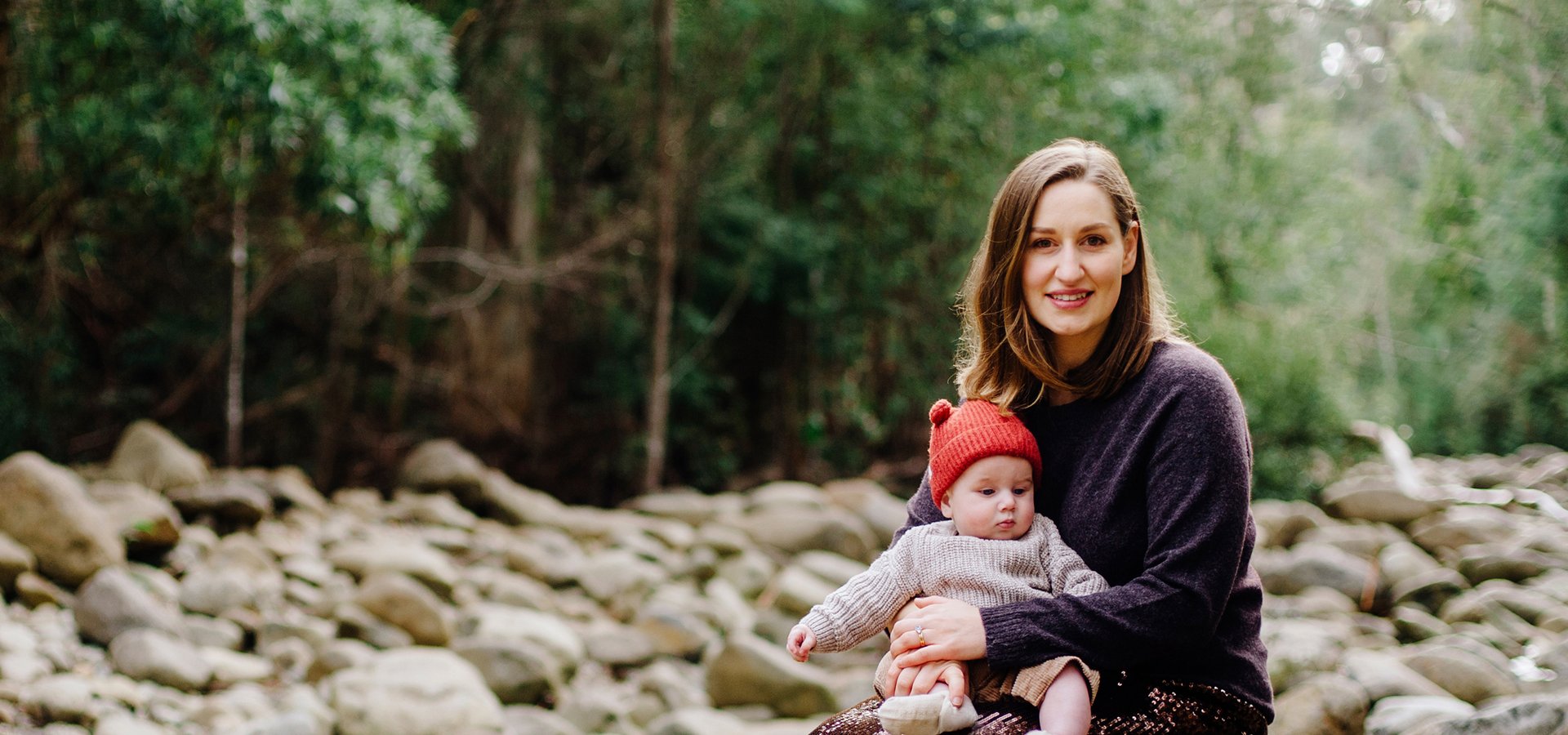
"I had never worried about something so small before. And I’m not a worrier. I like to think that my emergency nursing background has grounded me. It really opened my eyes, having Sam."
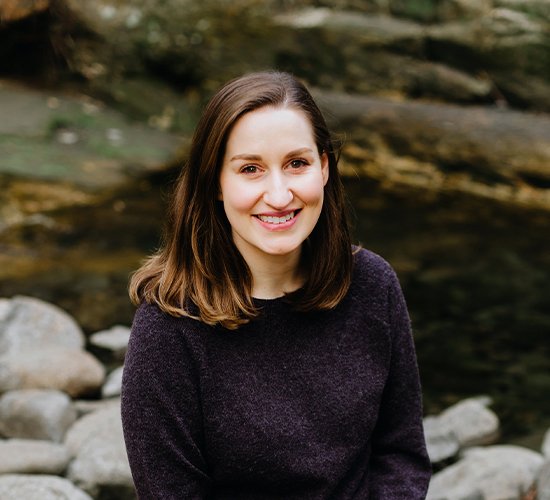
At a busy airport bag drop, Olivia LaDuke is getting ready to fly back to the UK. She’s returning to her life in London, where she works as a nurse for British Government and Military personnel.
She’s about to depart when she meets Troy. This chance encounter sparks a flurry of long-distance WhatsApp messaging, evolving into international travel once borders reopen. Troy flies to England for three months, where he meets Olivia’s family for the first time. They greet him with genuine warmth, kindness, and care — values that have driven Olivia throughout her life, and that she now sees in Troy.
“I’m not a religious person myself, but my grandmother, mother, and I all went to the same Quaker school,” Olivia says. “Our Quaker ancestry taught us that everyone is equal, everyone has a story to tell, and everyone has something to contribute to the world. My mother had been to Tasmania in the ‘80s and she loved it here. She said, ‘Troy is just so honest and genuine.’”
And then Olivia has a realisation: this is something special and worth holding on to. She decides to travel to Tasmania to experience life with Troy. After months of exploring together, Troy finds joy and wonder in seeing his home through the eyes of Olivia and his 4-year-old son, Uriah. And with that, after years of living in big, fast cities, Olivia finds a place to pursue a different kind of life.
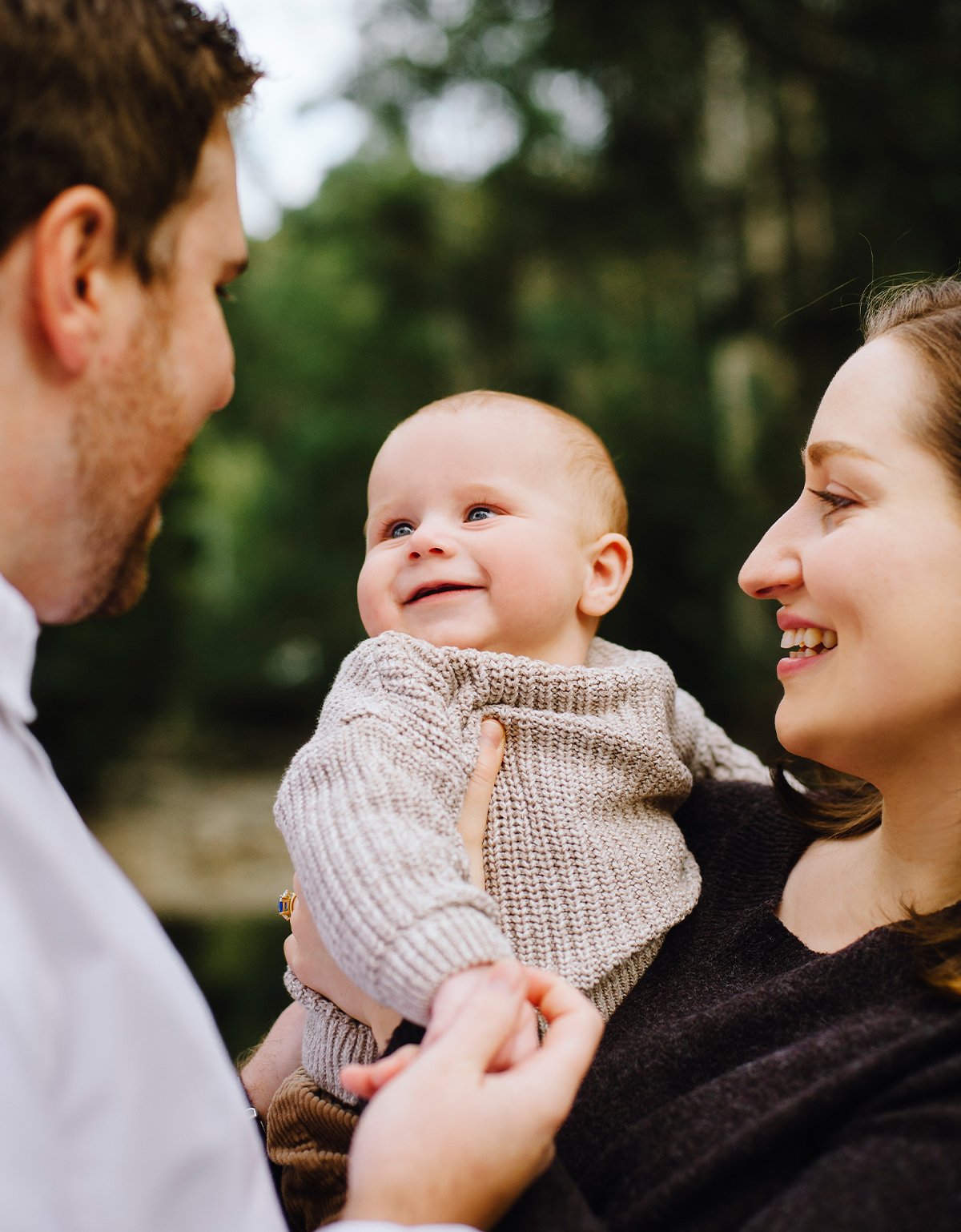
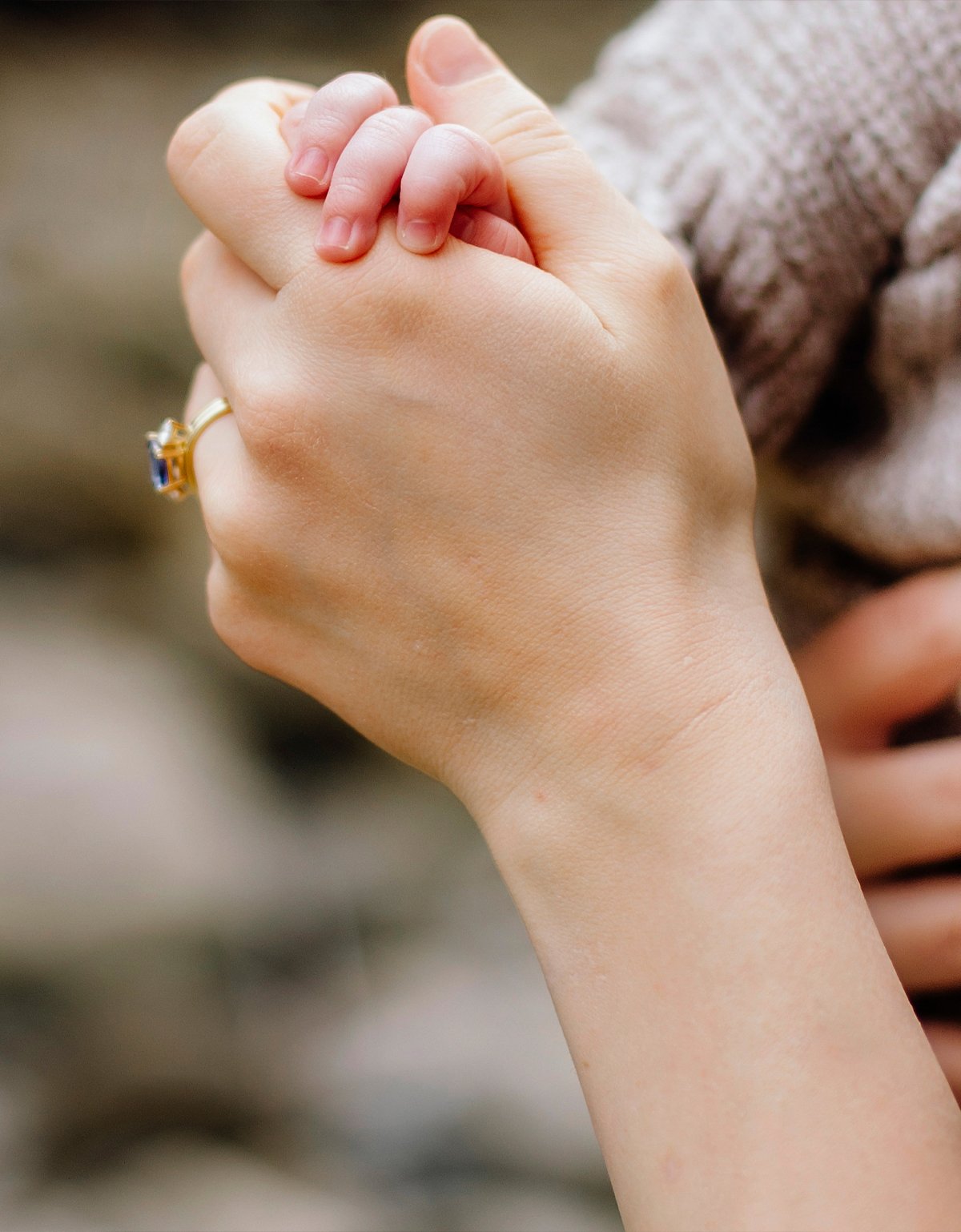
“When I moved here, I said to Troy, ‘Let’s go and find a wombat. I’ve never seen a wombat!’ Maybe it sounds silly, but he has a newfound appreciation for it. We go aurora-chasing. We go looking for platypuses. We go snorkelling. It’s such an adventure.”
Moving permanently to a new place to pursue a relationship — not knowing anyone aside from your partner’s family — would be difficult for anyone. Once she arrived in Tasmania, Olivia took an active approach to making new friends. She soon grew her own social circle through walking to and from the hospital in Hobart and meeting up with colleagues after work. The idea of growing their family led Olivia and Troy to a new home outside the city. This year, they welcomed Samuel into their lives. A whole new world opened up for Olivia, one she hadn’t realised existed.
“I just thought, oh, looking after a child as a nurse, I’ll be fine! My God, was I wrong. Everyone said to me, ‘Your world changes when you have children’ and I thought, ‘Oh, that’s just something people say.’” Olivia laughs that she had a lot to learn. “I had never worried about something so small before. And I’m not a worrier. I like to think that my emergency nursing background has grounded me. It really opened my eyes, having Sam.”
While Olivia’s newfound worry was a surprise, her career in nursing was not. When she was small — though not quite as small as Sam — her care for those around her made her a natural sounding board when emotions ran high in friendship circles. Olivia loved helping and fixing things. She grew up learning lessons of kindness from her mother, and her father encouraged her to pursue university studies. That combination solidified her decision to choose a career in nursing. Olivia’s nursing experience now spans emergency nursing, elective surgery, isolation units, supporting royal families, and working at the coal face of a Covid ICU during the peak of the pandemic — but Sam was a new kind of challenge. Luckily, Olivia found herself well looked after.
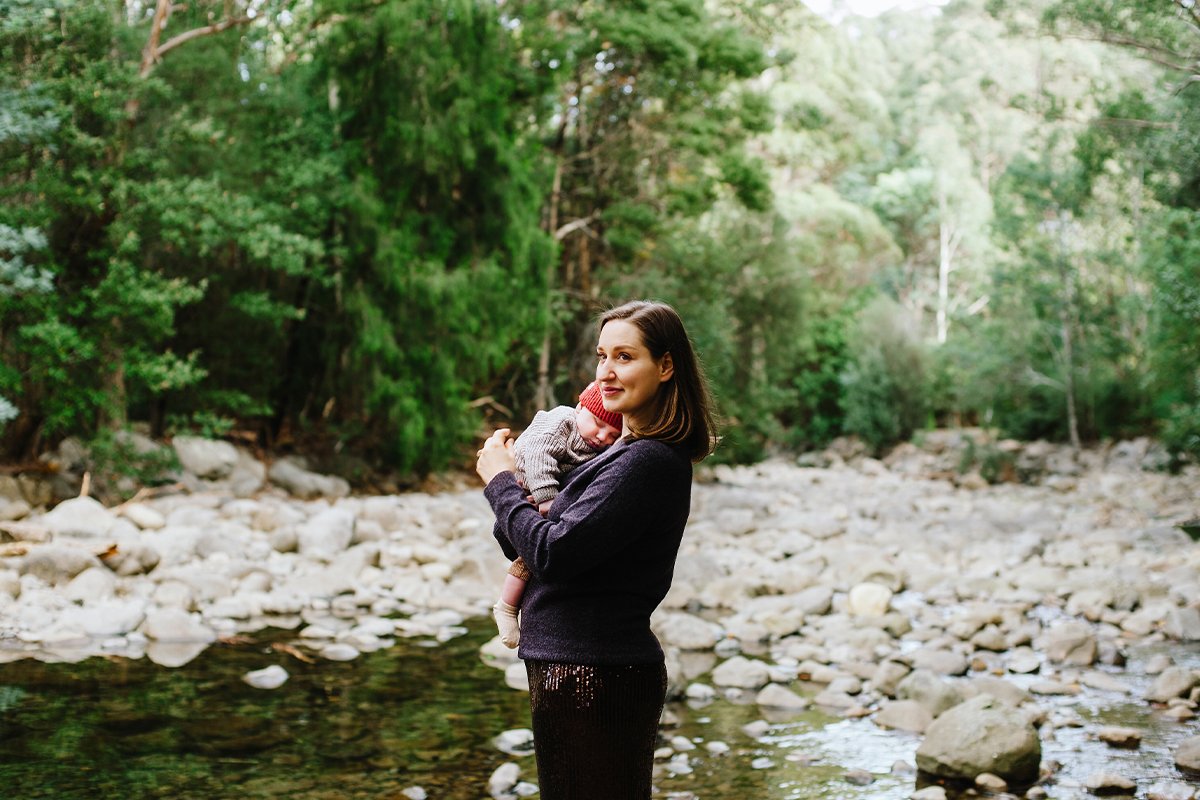
I think I needed that, because I was so worried about Sam. Is he not developing quickly enough? Is he not doing this? Is he not doing that? There is no judgement whatsoever. Sometimes we advise; sometimes we just listen and let someone get something off their chest!
“I knew through friends back home in the UK who’ve had children, this can be quite an isolating time. Here, I am so supported.” In Tasmania, new parents are supported by a nurse from the Child Health and Parenting Service (CHaPS). And as a Tasmanian Aboriginal child, their whole family is supported by the Child and Family Health Nurses at the Tasmanian Aboriginal Centre (TAC) Aboriginal Health Service.
When Olivia’s CHaPS nurse came to her home for the first time, Olivia found the experience wonderful. Her CHaPS nurse introduced her to the Saltbush Child and Family Learning Centre, and she joined a CHaPS new parent group, for parents with babies born around the same time. There, Olivia discovered a friendship circle she leans on even to this day.
“I think I needed that, because I was so worried about Sam. Is he not developing quickly enough? Is he not doing this? Is he not doing that? There is no judgement whatsoever. Sometimes we advise; sometimes we just listen and let someone get something off their chest! They are the most wonderful women ever.”
Sam arrived early, and they were in hospital five days before coming home. By the following week, her CHaPS nurse rang to talk about his immunisations. “It was such good care to me — especially coming from a hospital situation in the UK, where sometimes people don’t get followed up.”
Olivia was grateful to have guidance. Even as a nurse, she says, immunisations hadn’t yet occurred to her in the whirlwind of feeding and nappies. “I’m very pro-immunisation. Before I had children, I saw the impacts of vaccine-preventable diseases. For example, I worked with patients who hadn’t had their BCG immunisation and got tuberculosis, which is prevalent in parts of the UK. And polio — I went to university with a boy whose mother had polio in childhood. It caused her life-long mobility and health issues. Seeing that and knowing it’s preventable... that’s why immunisations are so important, to keep these things at bay.”
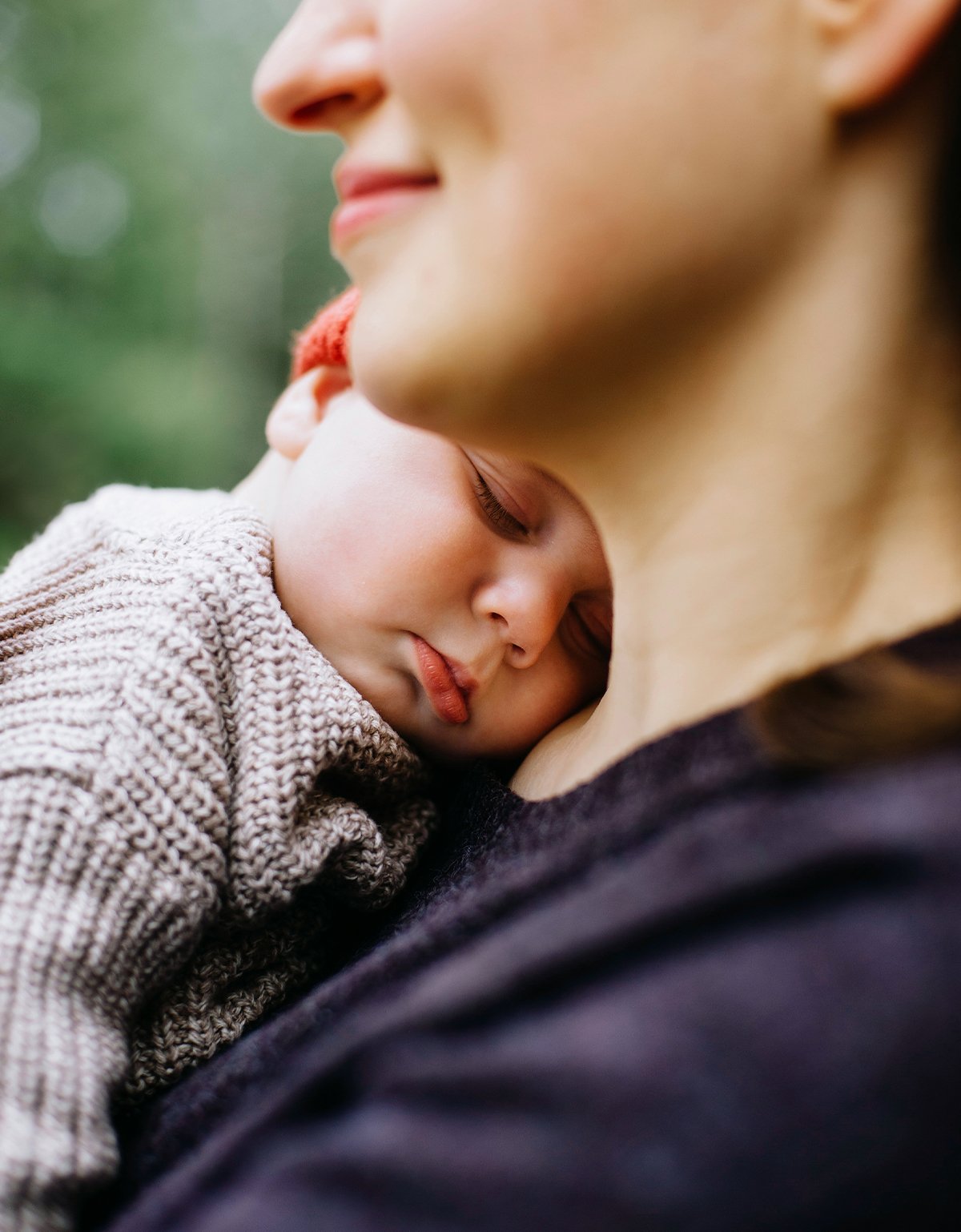
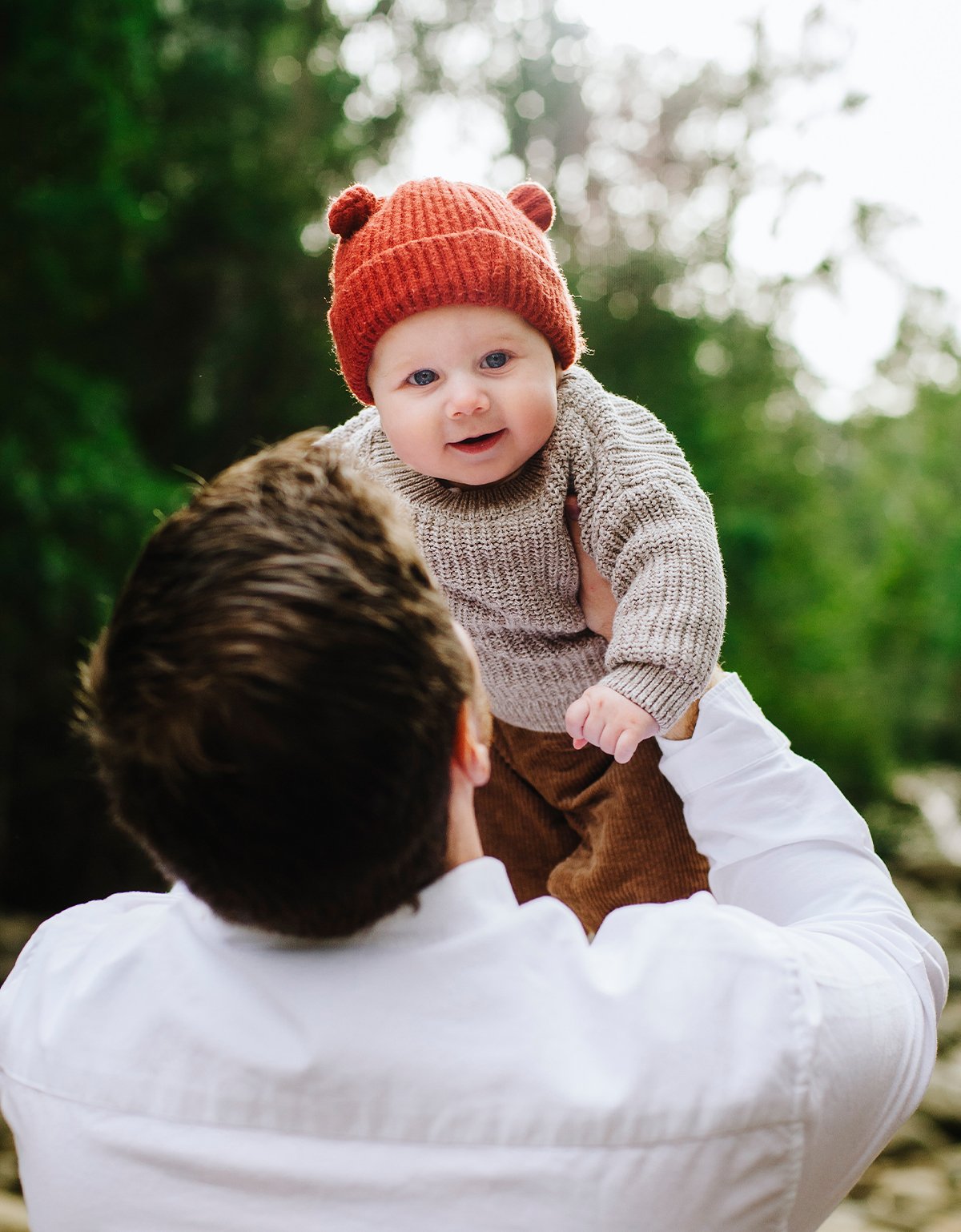
Olivia likens immunisations to putting on a jacket in cold weather to keep warm: it’s a part of keeping children safe. Before Sam, Olivia admits that she was “probably that stony-faced nurse who would say, ‘Why wouldn’t you want to get vaccinated — that’s so unsafe!’ But after having Sam, I nearly cried at his appointment because I was dreading it. Because I was thinking, he’s so small and I don’t want him in any pain.”
Olivia understands the hesitancy new parents can feel about immunisations, and her experience with Sam has granted her fresh empathy for this doubt. But she says her experiences — in emergency departments with respiratory viruses and tropical diseases — help her understand the potential consequences. “The evening that Sam had his first jabs, he was a bit clingy and upset, but it was definitely manageable. That, versus seeing Sam with a ventilator on him because he’s caught RSV… I know which one I would pick. Every time, I would go for the vaccine.”
“I can imagine the fear, of not fully understanding what’s in it. But the important thing is vaccines are tested; they are safe. They wouldn’t put it out if it wasn’t safe. Any adverse effects are so rare.”
Olivia’s belief in careful understanding of others has helped her thrive as both a nurse and a mother. She avoids a “my way is the only way” approach to either role, and she believes others should unpack the information to make informed choices. For Olivia, immunisation is one of the many decisions grounded in this outlook. Safety is at the forefront of her and Troy’s minds as they prepare to take their youngest son to England to explore his English roots — but only for a visit.
“People in Hobart, they talk to each other. You say good morning. In London, on the tube going to work, everyone looks down. Someone could fall over, and no one will bat an eyelid. I don’t want to live like that. I don’t want to have children that grow up in that sort of environment. I want space for them: parks and safe places for them to grow up.”
Olivia's face floods with warmth as she recounts the people in her life, her roots, and travelling the world. She feels grounded by her family’s values and the wealth of experiences shaping how she connects with others. She is visibly excited at the prospect of connecting Sam with the journey of her life and, through Troy and his family, Tasmanian Aboriginal culture.
“We’ve done so much together: Troy, his home, exploring it together, me, that annoying person with the camera, taking pictures of all the animals. This is really home. I don’t see myself moving anytime soon. I love it too much.”
We worked with southern Tasmanian photographer Lisa Kuilenburg for this Tasmanian story.